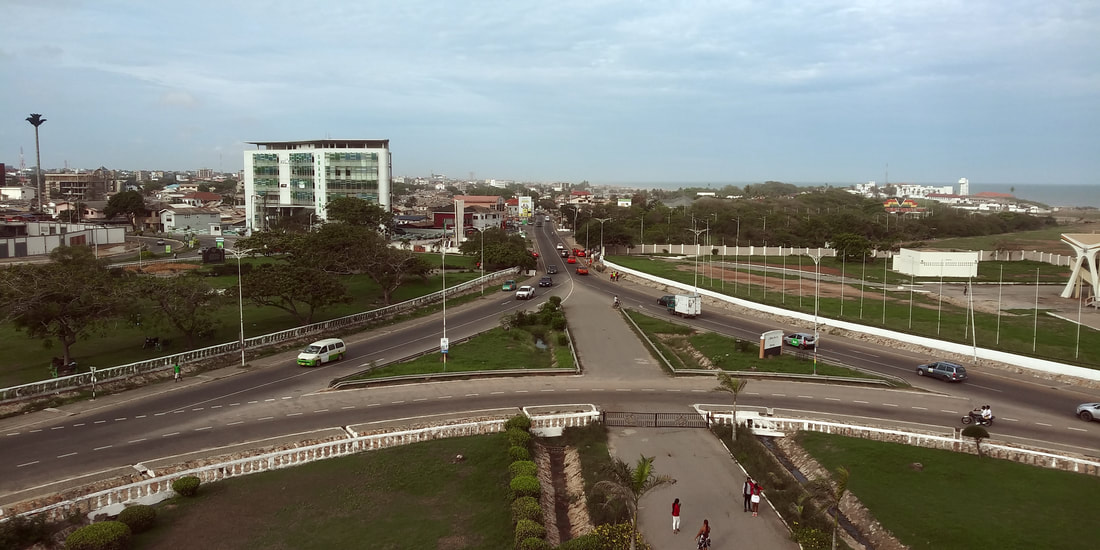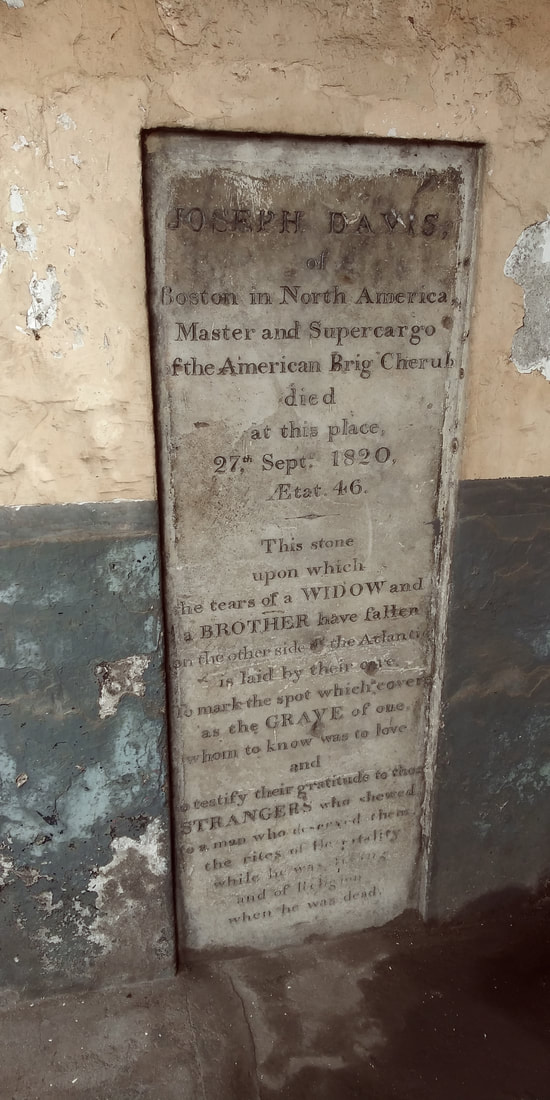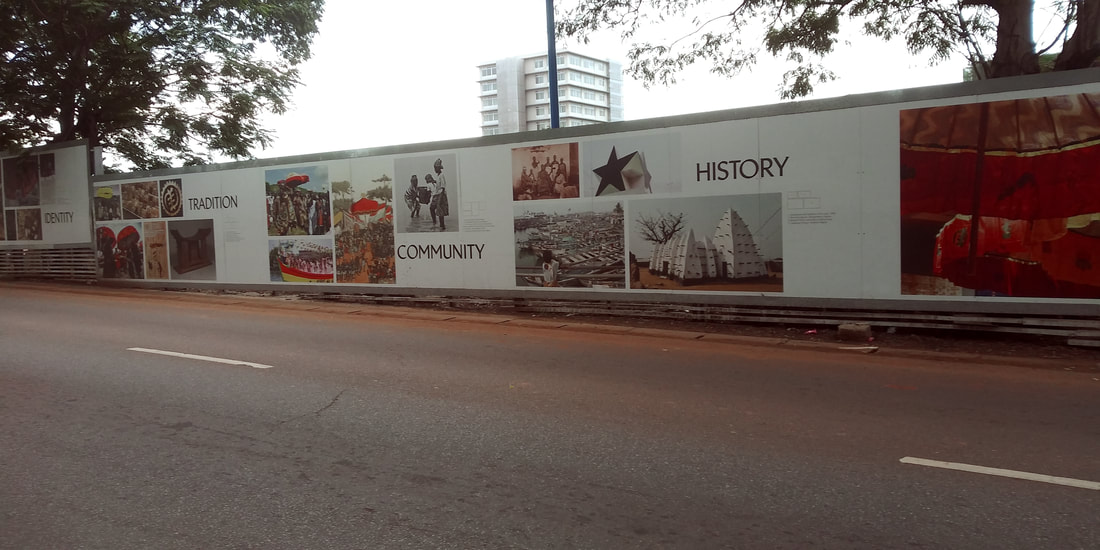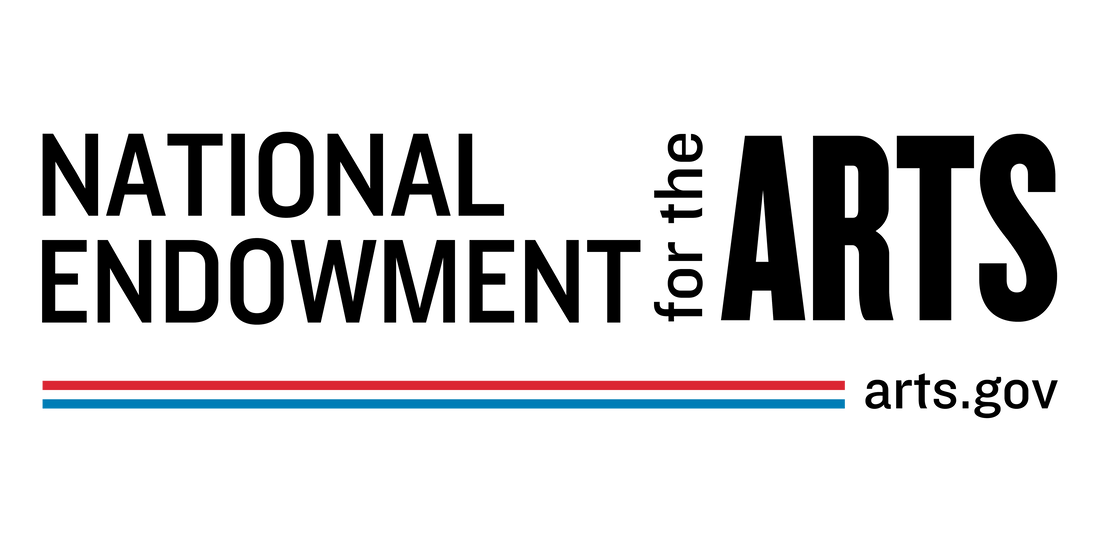|
by Anthony R. Green It must be stated that I can never write exactly all the emotions that I felt at the end of my second day in Accra. I can attempt to share with you some of this rollercoaster, but it goes much deeper than what I can ever express in words. I woke up without a plan. I knew I wanted to see a colonial fort – one of the structures that was used to send Africans to the Americas. As I live in the Netherlands, I wanted to see Ft. Amsterdam, but figuring out how to travel that far as a foreigner proved to be impossible. After scanning Google Maps, James Fort in the Jamestown area of Accra stood out, as my birthplace is in Virginia. Google Maps estimated a walk to Jamestown to be a bit more than an hour. Perfect – part one of my day done! As I walked south from Accra center to Jamestown, I couldn’t help but stop and take in the sites, the sounds, the smells, the interactions, the new environment. Chatting with Monthati Masebe in the morning, she suggested I take some field recordings of my walk – sadly I did not, and I do regret not heeding her advice. There was new music, new laughter, new languages, a different type of English, new shouting, and the car horns … Bostonians, you think your city has too much beeping? You have NOT been to Ghana!!!! The beeping is a COMPLETELY different system, and it is quite difficult to adjust to it. After walking through an area that felt like I was intruding upon a rather intimate community, I found the lighthouse and the fort. A lovely man offered to give me a tour, and even though I knew by now that the price was not something officially set and I probably would have to give a random amount at the end, I couldn’t turn down a chance to learn something about this place from a local. The tour guide took me to some colonial buildings and community centers where traditional religious practices are still observed, including drum playing and pouring libations. His explanations of the colonial practices felt like needles that, when you think they’d come out, were mercilessly inserted deeper. We circled back around to the fort, where the guide called his mate to fetch the key and open the structure. This particular fort, after it was declassified as a slave-holding facility, was then turned into a prison, where Ghana’s first prime minister – Kwase Nkrumah – was held as a revolutionary prisoner. The tour guide showed me the area where Africans were chained; the slots where chains were attached are still present. He showed me the small cells where Africans were stuffed. He explained that in one room, up to 70 people were forced inside, yet the room could hardly hold 20 people comfortably. He showed me Kwase Nkrumah’s cell, pointed out the lack of windows, the earth as the ground, and the small hole where the British would drop a bit of food from time to time. Then he pointed out a plaque that the British had built to celebrate one of their greatest collaborators in the Transatlantic Trade: Joseph Davis from Boston. Holding back the utter shock and disbelief, the tour guide continued by showing me the “point of no return”, and explaining some technical aspects of how the system worked, which I cannot get into here. In sum, it made me further examine the relationship many Black people have with large bodies of water – a discomfort that I still have. We left the fort, and continued throughout Jamestown, where he showed me more colonial buildings, but then had an honest conversation with me about identity, pride, education, and the future. He then introduced me to some of his friends, explained that he was also a musician, showed me the market area with hundreds of goats and cows and chickens and sundry, and we concluded our tour there. I gave him as much GH₵ as I could, said goodbye, and tried to process what I experienced. I started walking and I had to just stop, gather myself, and move on. After a quick re-orientation courtesy of GPS, I noticed if I continued east, I would walk past some of Accra’s most iconic areas: the Nkrumah Mausoleum, Black Star Square and Independence Arch, a castle, and then end up at the beach. I followed this path, took many pictures along the way, saw so many more things, helped some locals with very small tasks, climbed the Independence Arch, and noticed the resilience that keeps this country going. While the castle area didn’t really read to my Euro-American western mind as a castle, the area was by a very small plot that had some ostriches and pheasants (so cute), which welcomed me before I made it to the beach. It was here that contemplated even more my relationship with water, how the very water I was looking at is related to my birth in the United States, and what it all means to be living in Europe and back in the motherland as a tourist. Can I really be a tourist here? I decided to walk back to my hotel, and found an unexpectedly lovely path which took me past a military cemetery, an ambulance that said Krankenwagen (many Germans have missions in Ghana, and it is apparently common to see German in public spaces), and a long road with many images and explanations of traditions in this complicated country. There was text about Ashanti tradition, the symbolism of umbrellas, the newly built Catholic church (an impressive feat of architecture), even a bit about colonial music. On this cleansing (and unnecessarily complicated) walk back, I finally began to shift my focus on identity, tradition, community, and history, regaining my excitement to begin this 3-week long journey in a new country, on a new continent, within a new frame of mind. It was then that finally felt the akwaba (welcome) which Ghana had given me upon arrival. --
0 Comments
Leave a Reply. |
Details
Writings, musings, photos, links, and videos about Black Artistry of ALL varieties!
Feel free to drop a comment or suggestion for posts! Archives
May 2024
|
Member Login
Black concert series and educational programs in Boston and beyond




 RSS Feed
RSS Feed










